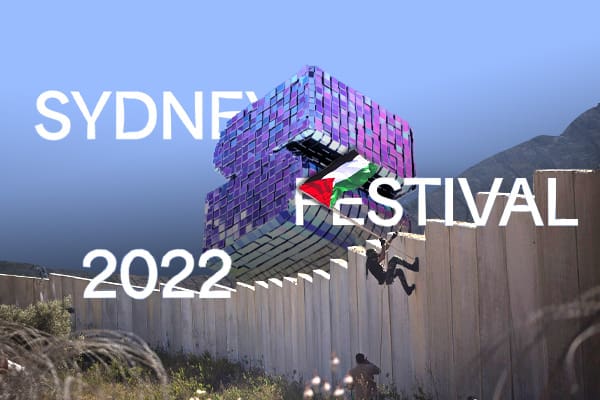Nine artists and organisations so far have rescinded agreements to participate in Sydney Festival as a result of a $20,000 sponsorship deal from the Israeli Embassy in Canberra. Multiple petitions are calling on patrons and artists to support the boycott and for the organisers to reject Israeli funding.
So far, participants in the boycott include Malyangapa and Barkindji rapper Barkaa, dance ensemble Bindi Bosses, Bankstown Poetry Slam, award-winning comedian Nazeem Hussain, Yuin & Thunghutti rapper Nooky, musician and artist Marcus Bale, Arabic musicians Ensemble Dandana, and Darumbal and South Sea Islander journalist and writer Amy McQuire. The latest participant to join the boycott is Khaled Sabsabi, a video artist who was set to present a survey exhibition of his work.
These withdrawals from the festival come in the wake of an open letter from Boycott, Divestment, Sanctions (BDS) Australia, co-signed by a number of member organisations including Australians for Palestine, General Union of Palestinian Workers, and Australian Friends of Palestine Association.
In an open letter to Sydney Festival’s director, Olivia Ansell, BDS Australia calls on the festival to ‘seriously reconsider’ their association with the state of Israel.
“Arts, culture, and politics cannot be separated. Israel funds cultural events and ambassadors to ‘art-wash’ the human rights violations it perpetrates against the Palestinians by presenting itself as a normal ‘democracy’ and one which can be accepted internationally, despite its ongoing grave violations of human rights and international law.”
The editors of The Sunday Paper echoed this sentiment in a statement posted to Instagram.
The statement calls for artists, employees, and patrons to join the growing boycott.
“In that same month [May of 2021], even as they watched body after body pulled from the rubble, the Sydney Festival Board approached the Israeli embassy for money. The embassy offered them $20,000. In return, Sydney Festival made the state of Israel a ‘Star Partner’.”
“In defending this despicable decision, the Board has described Sydney Festival as ‘non-political’. Complicity with an occupation regime is always political. Sydney Festival is enabling violence.” The Sunday Paper said.
Co-listed as a ‘Star Partner’ alongside the Israeli Embassy is the University of Sydney’s own Seymour centre.

The artwork that received the $20,000 grant is Decadence, a 75-minute dance performance by Ohad Naharin. Naharin crafted the work over a decade while working with Tel Aviv’s Batsheva Dance Company.
Interestingly, Naharin himself claims to be a supporter of the BDS movement. In a 2019 interview, Naharin told Army Radio Israel that “if boycotting a performance of mine will improve the situation in the territories or bring a solution to the conflict, I will support the boycott myself,” because “BDS has an agenda that I identify with. They are against the occupation.”
Israel’s cultural minister at the time condemned these comments as “unfortunate, infuriating, and should be fiercely condemned.”
Naharin’s statement stands in contrast to earlier comments he made in 2016 when he was boycotted by Brian Eno, claiming that boycotting his work is ineffective, a ‘lazy gesture’ as well as a ‘useless act’.
The BDS movement, inspired by the South African anti-apartheid movement, has since 2005 advocated for boycotts, divestment and sanctions against Israel. This includes a cultural boycott, as the movement argues that cultural institutions are ‘part and parcel of the ideological and institutional scaffolding of Israel’s regime of occupation, settler-colonialism and apartheid against the Palestinian people.’
Cultural boycotts are not unprecedented in the Sydney art world. In 2014, the Biennale of Sydney faced a boycott and significant media attention following sponsorship from Transfield – a company that attracted notoriety as a primary contractor for mandatory detention centres on Nauru and Manus Island.
The boycott was criticised at the time as ineffective and silencing the voices of artists, with participants branded as hypocrites for not boycotting other Transfield projects – including much of Sydney’s public transport network.
It was ultimately successful. After the withdrawal of nine artists, the chair of the Biennale’s board, who simultaneously served as director of Transfield Holdings, resigned in response to the controversy. Funding from Transfield was rejected and many of the boycotting artists went on to rejoin the Biennale.
Similar criticisms are currently being levelled at the boycott of Sydney Festival. It remains to be seen whether the Festival’s board will reject Israeli funding, and with little over a week until opening they appear to be holding firm.
Sydney Festival is set to open on January 6 2022, and is currently poised to go ahead despite both the boycott and escalating COVID-19 case numbers in Sydney.





